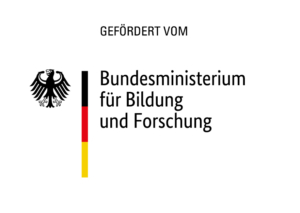ReCO2NWert – Start of an industrial research project as part of the structural transformation of the Rhenish mining area
![]()
The transformation processes in the structural change of the Rhenish mining (RR) area aiming to move towards a CO2-neutral economy. This is a huge challenge, particularly for the industrial companies, especially those that emit a large amount of CO2. To get the transformation successful, production processes must be transformed, and new technologies and business models have to be developed. The industrial research project ReCO2NWert, funded though the BMBF, will decisively contribute to this. With a total volume of €8 million, ten project partners, consisting of research institutions and industrial companies, will be working together to fix carbon from unavoidable CO2 point sources and thus prevent CO2 or CO2-equivalents released into the atmosphere and lasting our climate. Within four years, a consortium consisting of the Cluster Industrielle Biotechnologie (coordinator), Babor, Covestro, Fraunhofer IME, Fraunhofer UMSICHT, MVA Weisweiler, nova-Institut, RWTH Aachen University and Ruhr University Bochum is working together to establish a new regional value cycle. This will make it possible to drive the resource transformation forward in the region and develop sustainable products such as cosmetics or polymers.
There are multiple ways to convert the carbon into valuable products. In addition to traditional chemical processes, biotechnology offers a great potential. Biotechnological conversions have several advantages over chemical transformation processes. Microorganisms as biocatalysts can often carry out complex conversions and syntheses under very mild process conditions. These include low temperatures, low pressures and an aqueous environment. In addition, biocatalysts can tolerate impurities of the used process gas much better than chemical catalysts. Thus, biotechnological production processes can significantly contribute to the reduction of CO2 emissions.

In this context, the project ReCO2NWert (Implementation of biotechnological CO2 utilisation in regional value chains for the transformation of the chemical industry) aims the biotechnological conversion of unavoidable C1-containing process gases into industrially relevant products. ReCO2NWert will therefore contribute to transforming the largely fossil-based chemical industry in and around the RR into a bio-based and more sustainable industry.
The focus of the project a biotechnological multi-stage process will be developed to electrochemically convert CO2-containing flue gas from the waste incineration plant in Weisweiler into synthesis gas and subsequently by a microbial fermentation into high-quality products that can be industrially used. After purification of the intermediate products within the downstream part of the process, the industrially relevant products are generated by enzymatic and / or chemocatalytic valorisation. The planned platform technology is based on a gas fermentation process that was developed in the BMBF-funded BioCOnversion project. In order to further develop this process, the substrate spectrum will be extended from CO to CO2 and expanding the product portfolio will manifest the platform character. The economic viability and environmental impact of the developed technologies will be continuously assessed by a techno-economic evaluation (TEE) and a life cycle analysis (LCA). In addition, future economic utilisation of the process plays a central role in the project. Industry representatives may contribute to the process development during the project by participating in an industrial advisory board.

The development of the ReCO2NWert platform technology is intended to demonstrate the future economic viability of the process for industries inside and outside the RR. For this reason, a container plant will be designed, which will be used as a mobile process unit in the RR. In the future, this container plant will be able to utilise CO2-containing process gases directly where they are emitted, convert them into products and demonstrate a regional value chain. In the long term, the technology developed can lead to integrated production plants linking previously separate branches of industry with each other, thus creating completely new, circular value chains.
In April, a kick-off event for the BMBF funding programme CO2BioTech (climate neutral production through biotechnology – CO2 and C1 compounds as sustainable ressources for the industrial bioeconomy) was organised. ReCO2NWert is funded through this programme. The project ideas of all projects funded through this programme were presented at the event. Different workshops provided possibilities for the participants to network with other stakeholders from academia and industry. In addition, the topic of science communication was highlighted and ideas and strategies were developed by the participants.



